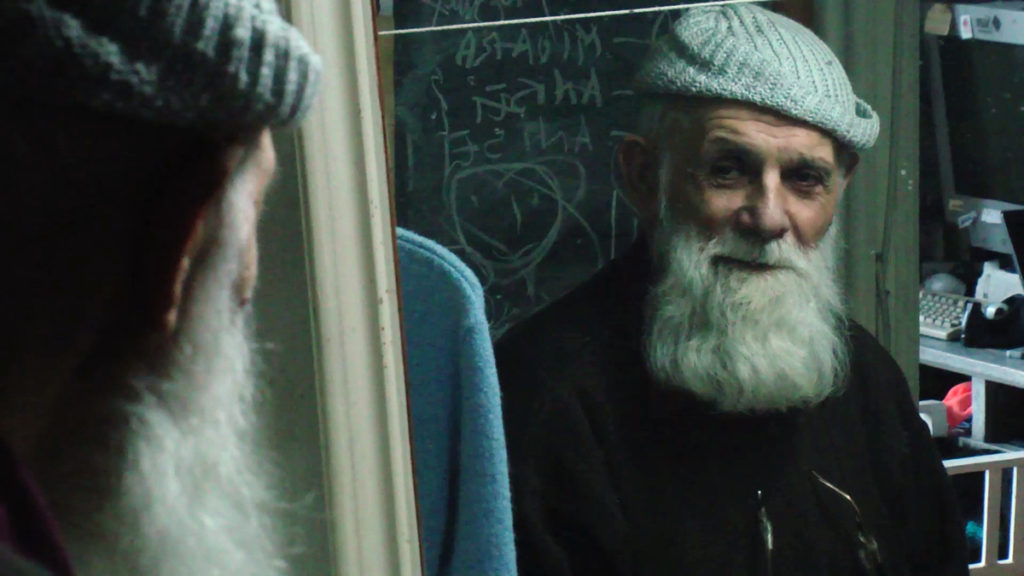Review: Timebox (2018), by Nora Agapi

How can a filmmaker do a portrait of their family member, make it an interesting one, and keep it relevant for the various audiences from all over the world? Nora Agapi tried to answer the question with Timebox, a film centered around her father, Ion-Matei Agapi, a documentary pioneer and unofficial historian of the city of Iasi, Romania who got himself into housing trouble with the town officials. The film premiered at home turf at the last year’s edition of Astra before a festival tour that included Jihlava, Crossing Europe and DokuFest in Prizren, where we had the chance to see it, and where it was awarded in the Balkan Dox competition.
The protagonist of the film, Ion-Matei Agapi is facing eviction from the apartment at the state-owned building in the centre of Iasi. However, this 80-year-old does not care much about himself and his personal comfort, but also searches the place for his extended collection of photographies and filmed material he has made over the course of past decades. The city officials are not interested in that material (partly because most of it was made during the communist times, even though it is not usually political per se), but in austerity, so they repeatedly state that they are not obliged to find the place for Agapi’s archive. He, however, does not want to leave the building without his things…
On the other hand, he is not a simple man that could be easily scared of by authorities, he has an academic title, he is quirky and charismatic and he also likes the attention he gets from the local media. So his personality might become a problem for himself, his daughter who is filming him and who tries to serve as a voice of reason to him and to her film project about him and his archive.
Timebox, as a film, operates on three levels. One of them is a deeply personal portrait garnished with fond memories about an exceptional character and an exceptional place that was used not just for living, but also for people gatherings, education and work (Ion-Matei still has his photo lab, for instance). Second one is the more universal story about forced and state-sponsored gentrification in which people and their personal belongings and memories are more often than not considered a nuisance or a threat to someone’s vision of progress. Third layer is the archive footage itself, something that might be considered as national or at least regional treasure, but no one gives a damn about it in the current state of things.
Nora Agapi does her best and succeeds in balancing the three layers into a coherent, intelligent and hearty film that steers clear from over the top sentimentality and pathos, even though some of the sentimentality is expected here. Her communication with her father feels natural (Ion-Matei likes the media attention, so she had to “train” him somehow not to pose for the camera). The story of gentrification is presented as a precise, yet warm case study and the archive is used in a measured and inspired way, so it is not just a “filler” of sorts. Given that the film was shot over a long period of time on a tiny budget and that Nora Agapi did the most of the work (such as cinematography) by herself, Timebox could be qualified as a complete success as a piece of documentary cinema and as a piece of a relevant social issues examination.
Film title: Timebox
Country: Romania
Language: Romanian
Runtime: 70 min.
Produced by: Monica Lazurean-Gorgan
Production Company: Manifest Film
Directed by: Nora Agapi
Screenplay: Nora Agapi, Maxim Carlan
Cinematographer: Nora Agapi
Editor: Rita Bakacs
















